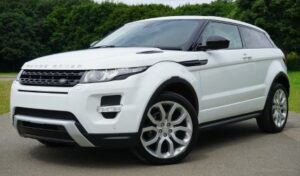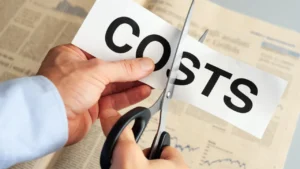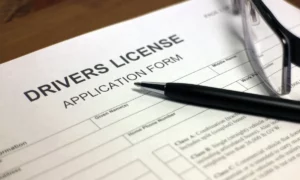The make, model, year, condition, mileage, and any upgrades or modifications that the motorcycle may have can all affect its market value.
Using internet resources like Kelley Blue Book or NADA Guides, which offer pricing guidelines for different types of bikes, is one approach to obtain an idea of your motorcycle’s value. You can enter your motorcycle’s information to receive an estimated value depending on its condition and other variables.
Another choice is to look through your area’s classified advertising or online markets to see how much comparable motorcycles are going for. This can help you estimate your motorcycle’s current market value.
When estimating your motorcycle’s value, you must consider many factors.
Factors on Which Motorcycle Value Depends
The cost of a motorcycle can depend on several factors, including:
1. Make and Model
Motorcycle brands and models are called make and model. Motorcycles’ features, styles, and performance vary by manufacturer, affecting their desirability and price.
Harley-Davidson, Honda, Yamaha, Kawasaki, and BMW are popular motorcycle brands. Each brand offers cruisers, touring bikes, sport bikes, and adventure motorcycles with unique features.
Popular brands charge more than lesser-known ones. Higher-end brand models can also cost more.
If you want to but a new motorcycle then you must read this article how much does a motorcycle cost?
2. Year
A motorcycle’s year relates to the model year in which it was produced. In general, the cost of newer motorcycles is more than that of used ones. This is due to the fact that newer models frequently include upgraded features, technology, and designs, which can increase their value and desirability.
Also, because they have not been used as much, new motorcycles may have less mechanical problems and are therefore more dependable. However, older motorcycles may cost less but require more maintenance and repairs, raising their total cost of ownership.
Some vintage or classic motorcycles may cost more due to scarcity, historical significance, and collecting value. In the end, a motorcycle’s year can affect its value, but condition and mileage should also be considered.
3. Condition
A motorcycle’s worth is significantly influenced by its condition. The condition refers to the overall status of the motorcycle, including its aesthetic, mechanical condition, and usefulness.
A well-maintained motorbike costs more. Well-maintained motorcycles with no major dents or scrapes and smooth operation are in excellent condition. It may have low mileage and high-quality parts.
On the other hand, a motorcycle in fair or poor condition could show obvious symptoms of deterioration like dents, rust, or scratches. It might also have mechanical faults that impair its overall performance, such as troubles with the engine or transmission. Motorcycles with fair or poor condition will therefore often cost less than those with great condition.
Before estimating a motorcycle’s value, it’s important to evaluate its condition. Even minor cosmetic or mechanical issues can lower its value.
4. Mileage
Motorcycle mileage affects value. Mileage, or total kilometres driven, is a key indicator of motorcycle wear and tear.
In general, bikes with lesser mileage will be worth more than bikes with higher mileage. This is due to the fact that motorcycles with lesser mileage may have less engine and component wear and tear as a result of having been ridden less frequently. They may require less maintenance and have fewer mechanical issues.
Yet, while estimating a motorcycle’s value, mileage is not the only thing to take into account. Well-maintained, high-mileage motorcycles can be valuable. In contrast, a motorcycle’s value could be low if it is in poor shape while having little miles on it.
It’s crucial to take into consideration a motorcycle’s age, condition, make, and model in addition to its mileage when determining its market value.
5. Modifications and Upgrades
A motorcycle’s worth may rise as a result of upgrades and modifications, particularly if they are high-quality and expertly carried out. These alterations could involve improving the vehicle’s engine, suspension, brakes, and exhaust system as well as adding extras like personalized seats, mirrors, and lights.
High-performance upgrades that improve the motorcycle’s performance in terms of power, speed, and handling can raise its worth dramatically. It’s important to remember, though, that not all upgrades will raise a motorcycle’s worth. Poorly executed modifications or those that do not complement the motorcycle’s general design or purpose may actually lower its value.
Any enhancements or modifications to the motorcycle should be carefully documented, and they should be installed by a respected mechanic or custom shop. This can help to confirm the caliber of the job and give potential customers assurance regarding the motorcycle’s functionality and worth.
A motorcycle’s worth can increase with upgrades and alterations, but it’s crucial to thoroughly evaluate the applicability and quality of the additions before setting a motorcycle’s price.
6. Location
A motorcycle’s worth may also vary depending on where it is located. Depending on the area and the state of the local economy, a motorcycle’s price may change. Motorbikes may be worth less in rural areas with low demand than in urban areas with high demand.
Additional elements relating to location that may affect the value of a motorcycle include local weather conditions, riding culture and rules, and availability of repair and maintenance services. Motorcycles may have a shorter lifespan and require more maintenance in regions with extreme weather conditions, such as those with snow or salted roads, which might reduce their value.
Similar to this, there can be less demand for motorbikes in locations with severe motorcycle rules or limited interest in riding them, which might lead to reduced prices.
The make, model, condition, mileage, as well as any aftermarket modifications or additions, all affect a motorcycle’s worth.
7. Market Demand
Demand drives motorcycle prices. Current design trends, brand popularity, and rival models can affect market demand for a motorbike.
A motorcycle’s worth will normally be higher than a comparable motorcycle that is in low demand if it is in high demand. When compared to motorcycles that are less popular, those in high demand may sell faster and for a higher price. However, a less popular motorbike may sell slower and cost less.
Market demand is affected by supply and demand, the economy, and international events. A recession may lower motorbike prices. A global shortage of motorcycle components or materials may increase demand for certain models and raise prices.
A motorcycle’s value is significantly influenced by market demand. Learning about the state of the market and any potential trends is essential before setting a motorcycle’s pricing in order to be both competitive and accurate.
8. Accessories
A motorcycle’s value may also be affected by its accessories. Whether it be in terms of convenience, style, or performance, these add-ons enhance the motorcycle in some way. Saddlebags, windshields, heated grips, and bespoke paint treatments are a few examples of accessories.
A motorcycle’s worth can rise thanks to high-quality, expertly placed accessories that enhance both its aesthetic appeal and functional capabilities. For instance, purchasers seeking for a touring motorcycle might find a motorcycle with premium saddlebags and a windscreen more alluring. Similar to how a motorcycle with unique paint or other accessories may appeal to purchasers seeking for a motorcycle that is customized.
It’s crucial to remember that not all accessories will raise a motorcycle’s value. Accessories that are installed incorrectly or do not improve the motorcycle’s appearance or performance might reduce its value.
It’s crucial to take the quality, usefulness, and appeal of the extras into account when estimating the value of a motorcycle with accessories. It’s also crucial to keep accurate records of the accessories and their installation to offer potential purchasers with confidence in the motorcycle’s overall value and condition.
When to check the worth of the Motorcycle?
Researching a motorcycle’s value is a good idea. Knowing your motorcycle’s value can help you set a fair price and avoid being overly aggressive. If you’re buying a motorbike, knowing its value can help you haggle.
Even if you don’t plan to sell or buy your motorbike, check its value occasionally. Understanding your motorcycle’s value will help you choose maintenance and upgrades.
Some good times to check the value of your motorcycle include:
- Before buying a motorcycle
- Before selling a motorcycle
- When renewing insurance or registration
- When considering upgrades or modifications to the motorcycle
- As part of regular maintenance and upkeep of the motorcycle
Checking the value of your motorbike regularly can help you buy, sell, and maintain it.
Do Motorcycles have Resale Value?
Used motorcycles sell. Make, model, age, mileage, condition, customizations, and market demand affect a motorcycle’s resale value. Motorcycles, like all vehicles, depreciate over time.
Harley-Davidson, Honda, Yamaha, and Kawasaki bikes hold their value better than those from lesser-known or specialised manufacturers. Like cars, well-maintained motorcycles sell for more.
The market demand for particular motorcycle models can also affect how much they are worth when sold. Sportbikes and adventure bikes, which are popular with younger riders, may have a higher resale value than touring bikes or cruisers.
Depending on model, condition, and market demand, motorcycles can be sold for a profit even though they depreciate. Market research is essential when buying or selling a motorbike.
Conclusion
Make, model, year, condition, miles, modifications, location, and market demand affect a motorcycle’s value. Understanding these factors will help you value a motorbike, whether you’re buying or selling.
Knowing your motorcycle’s value can help you sell it for the right price and make maintenance and modification decisions. Checking your motorcycle’s value frequently will help you make smart ownership decisions.






